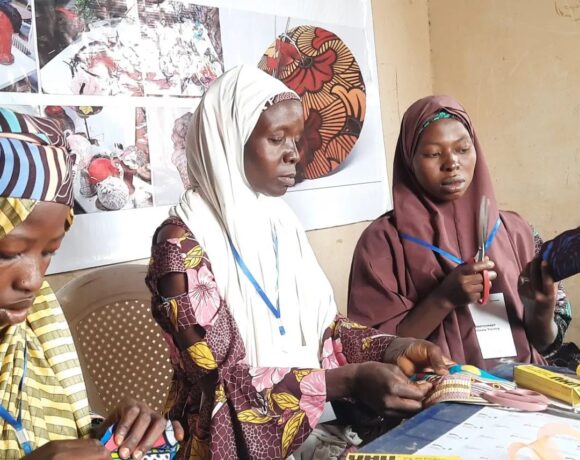Migration is not the West’s problem, it is Africa’s
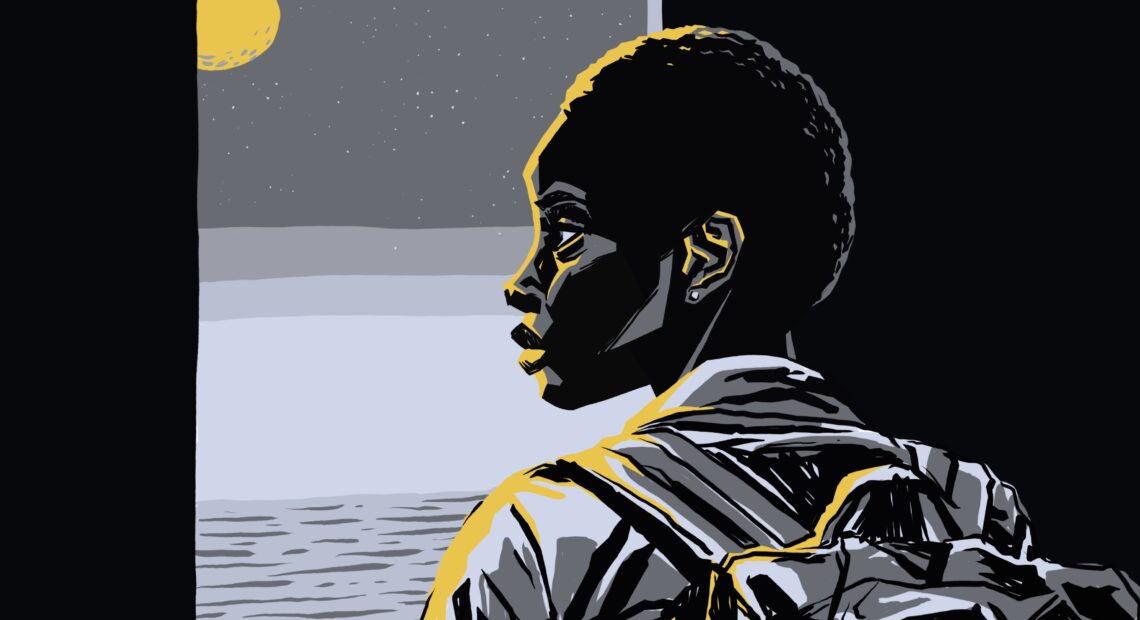
A ZAM TRANSNATIONAL INVESTIGATION
By Elizabeth BanyiTabi (Cameroon), Theophilus Abbah (Nigeria), Emmanuel Mutaizibwa (Uganda), Ngina Kirori (Kenya) and Brezh Malaba (Zimbabwe)
A new ZAM transnational investigation into migration from five African countries shows that, in many cases, the urge to leave is so desperate that migrants consciously risk extortion by smugglers, abuse, exploitative labour, and even death. In the vast majority of cases, awareness campaigns about these risks, financed by the EU and the UK, do not convince people to stay at home. A majority of interviewees in Uganda, Kenya, Cameroon, Zimbabwe, and Nigeria told ZAM team members that they would leave as soon as an opportunity arose, regardless of what awaited them.
Lack of hope
ZAM’s interviewees said they would leave due to the perceived lack of hope in these countries, which were generally described as poorly governed and repressive, with no prospects of employment (youth unemployment rates in the respective countries ranged from 40 to 70%) or building a family life. Almost all would-be migrants described their governments as incapable and mainly concerned with “eating from the public treasury” instead of paying attention to the needs of citizens. It was this situation, said interviewees, many of whom had crucial skills such as medics, teachers, and technical experts, that led them to conclude that only elsewhere, especially outside Africa, would a future with work and family be possible.
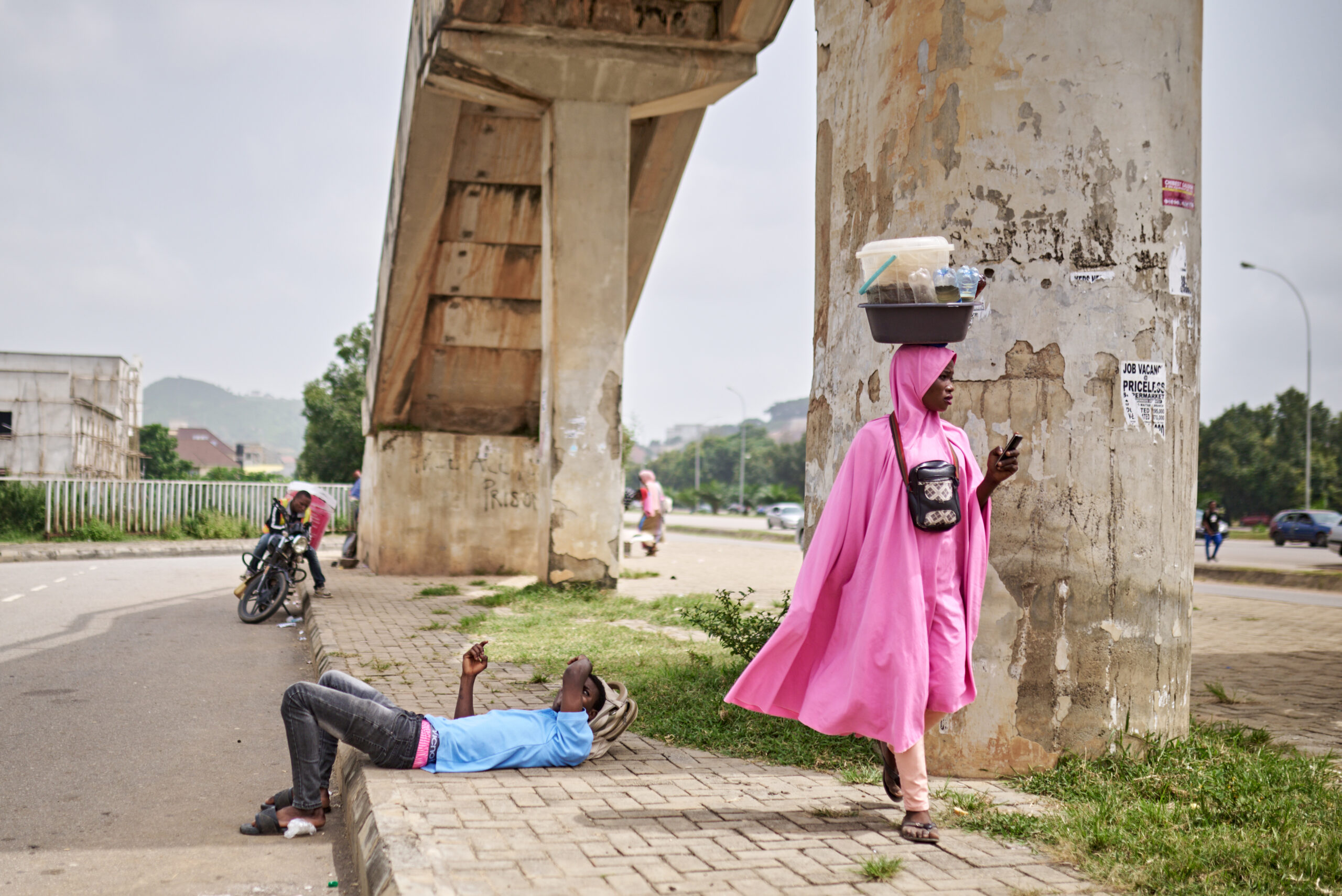
A young man lies down under a pedestrian bridge in Nicon Junction, Abuja. Photo by David Exodus
The research also shows that the smuggling and exploitation of migrants often involve high-ranking government officials. In Kenya and Uganda, at least US$76 million per year is paid to “employment agencies” that promise migrants a job in Saudi Arabia or other Gulf states. These agencies – especially in the case of weekly plane trips to Ryadh – benefit from protection from “high up”. In Cameroon, a businessman with government connections offered irregular French visas for sale, for the equivalent of US$6,000 each, to would-be migrants.
Exploitation of migrants often involves state officials
Although most interviewees said they would like to travel to Europe or the UK, in reality, few succeed. Our investigation confirms previous research (see here https://thecorrespondent.com/606/a-key-assumption-about-migration-turns-out-to-be-wrong-taking-a-few-of-my-articles-down-with-it and here https://www.friendsofeurope.org/wp/wp-content/uploads/2022/01/AEF_Summit_African-Migrations.pdf) showing that there is no “mass migration” from Africa to Europe or by extension the UK at all. The ZAM team reports on the vast majority of migrants who “get stuck” in the Sahel and north African countries, mainly due to a lack of money and an increasingly strictly patrolled coastline full of detention centres; on the hundreds of thousands of people trapped in exploitative labour situations in the Gulf States; and on the well-trained professionals who leave Zimbabwe for South Africa en masse.
Empty campuses
The fact that African illegal migration is not really a problem for Europe, or again by extension, the UK (where, also according to previous research, for example by the European thinktank the Jacques Delors Centre https://www.delorscentre.eu/en/publications/detail/publication/why-the-eu-needs-a-radical-re-think-on-labour-migration and the European Commission https://commission.europa.eu/strategy-and-policy/priorities-2019-2024/promoting-our-european-way-life/statistics-migration-europe_en, the economies would actually benefit from more incoming labour migration), however, does not alter the fact that the migration crisis is a nightmare for Africa itself.
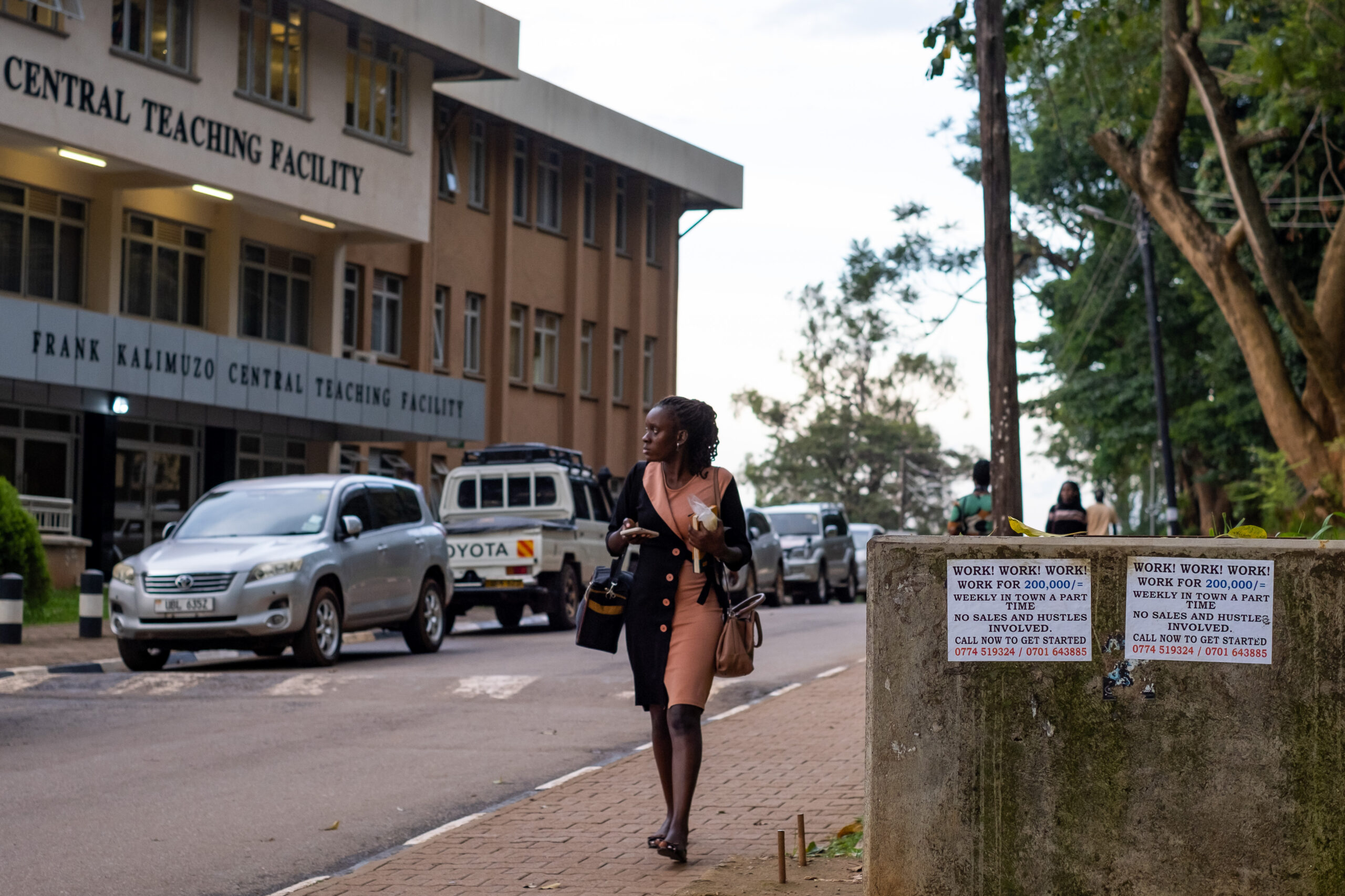
Makerere University Campus. Photo by Badru Katumba
The ZAM team describes empty campuses where vibrant universities once functioned, dilapidated hospitals, and economies and state institutions riddled with incompetence and nepotism. The very malaise that drives emigration of the skilled contributes to even more malaise, which again drives more citizens away from their countries. The situation prompted a representative of an anti-trafficking NGO in Kenya to remark, “It’s like telling a child not to put his hand in the fire. It still puts its hand in the fire.”
Most returnees left again
In this context, the team also reported that Western efforts to “promote development in Africa itself”, including by financing projects for “returning” migrants (often freed from Libyan and Algerian detention centres or lost in the desert), fail in at least 60 percent of cases. This figure is recognised by the EU’s and the UK’s main partner in these projects, the International Organisation for Migration (IOM) and even by the European Commission itself https://www.magyc.uliege.be/upload/docs/application/pdf/2021-09/d7.5v1-july-2021.pdf, but is still on the low side, according to our team. Three Nigerian returnees reported that many or most in their groups of returnees “sold their starter packs and left again.”
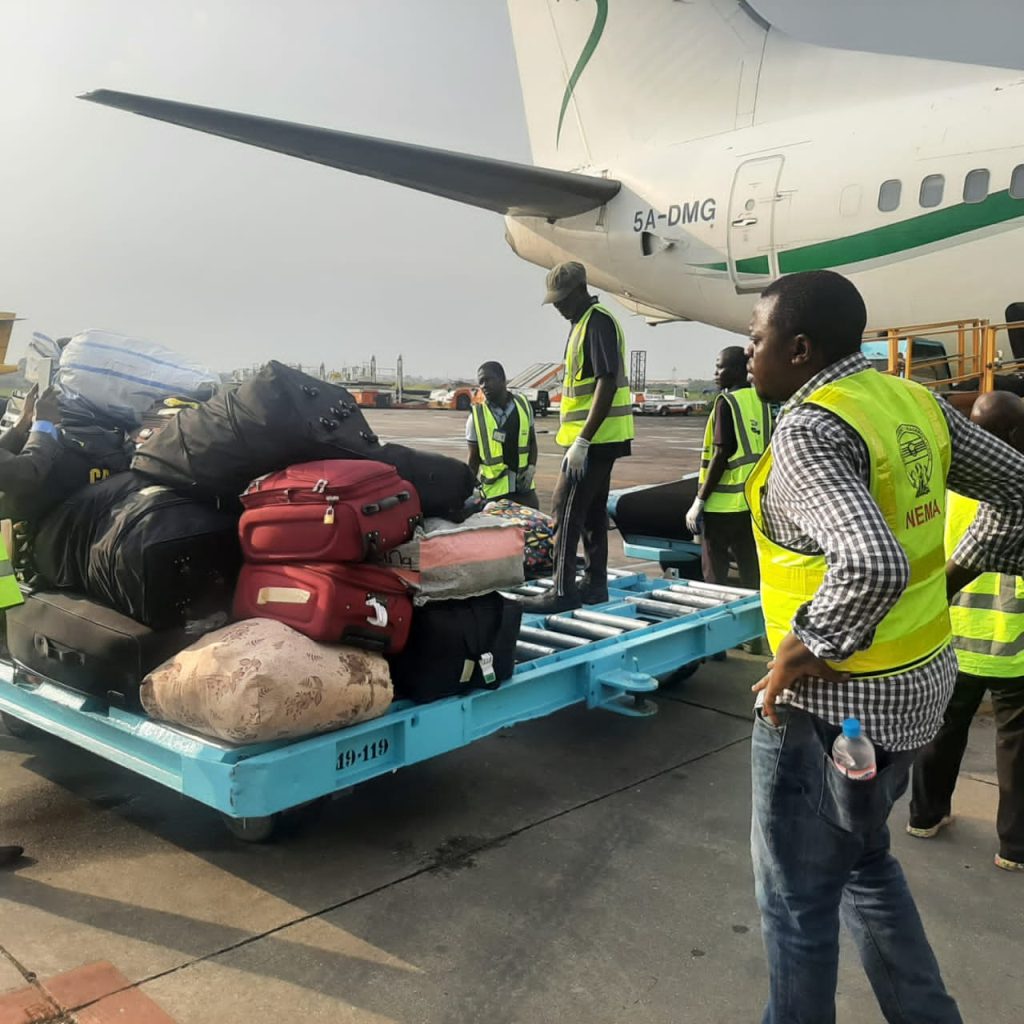
The airport ground services unload luggage belonging to Nigerian returnees from Libya. Source: National Emergency Management Agency (NEMA)
“Africa strategies”
These findings led the team to question why recently produced European and UK “Africa Strategy” documents (see here https://ecfr.eu/event/a-renewed-partnership-between-europe-and-africa-where-do-we-stand/#:~:text=In%20February%202022%2C%20the%20European,%20African%20continent%20as%20part%20, here https://international-partnerships.ec.europa.eu/policies/africa-eu-partnership_en; here https://www.institute.global/insights/geopolitics-and-security/security-soft-power-and-regime-support-spheres-russian-influence-africa and here https://www.government.nl/latest/news/2023/05/31/dutch-strategy-on-africa-2023-2032), emphasise “enhanced cooperation on migration and mobility” in “equal partnerships” with, if not (in the case of the Tony Blair Institute) “ambitious commitment” to, African governments that preside over countries where many citizens try to get away.
Besides the fact that these “partnerships” have already led to the criticism that Europe and the UK are “paying African dictators”, the question is how effective these strategies – and expenditure – can truly be, as long as “partner” states are riddled with corruption. For example, a “border control” project to produce a new digital passport system for Nigeria, funded by the EU to the tune of €250 million, was exposed in an earlier investigation by team member Theophilus Abbah https://www.zammagazine.com/investigations/1414-nigeria-the-border-control-syndicate-how-plunder-continues-in-spite-of-parliament-and-the-courts as a vehicle for corrupt contracts between businessmen and key officials in the Nigerian customs system, while Nigeria’s borders remained as porous as ever. Many of those interviewed told the ZAM team that these types of corrupt deals actually fuelled their desire to emigrate.
Remittances
The team found little to indicate that African regimes are seriously trying to curb migration “in equal partnership” with Europe or the UK. Porous borders and government officials’ lucrative involvement in human trafficking remain commonplace in all countries surveyed, while the billions in remittances from the African diaspora to their countries of origin also provide much-needed financial injections into ailing African economies.
The investigation also looked into the brain drain from Africa, where medical and other trained professionals, who often do receive visas, leave for better opportunities. One of our interviewees raised a key question: “The West says we have to develop, but how do we do that when all our brains have left?”
How do we develop when all our brains have left?
Putin
Underlying the European and UK strategies is, according to the policy documents mentioned above, also the fear that African governments, if dissatisfied with “the West”, might rush to embrace “other geopolitical players” – i.e. Russia and China. Some analysts consider this fear justified in light of the recent anti-French (and partly pro-Russian) coups in a number of West African countries. But this multi-country investigation indicates that continued “equal partnerships” with corrupt and oppressive rulers might well lead to the loss of even more trust from exasperated and restless citizens. In response to European fears that his dictatorial government could develop close ties with “Putin” if Western support were to disappear, a Cameroonian democratic activist asked: “But why don’t they support us?”
The team that conducted this research earlier this year published “Cry Freedom”, a transnational investigation into the suppression of protest in the same five African countries, which was also published on the ZAM website.
The investigation was coordinated and edited by ZAM’s investigations editor, Evelyn Groenink
Read also…
Losing hope |The Making of African Migration
Where exit is the biggest cash cow
Uganda| Between prayer and protest
Nigeria | The returnees who leave again
Paying dictators | The Making of African Migration
Cash cows | The Making of African Migration
Migration is not the West’s problem, it is Africa’s
The Insight Report
Nigeria Coverage



